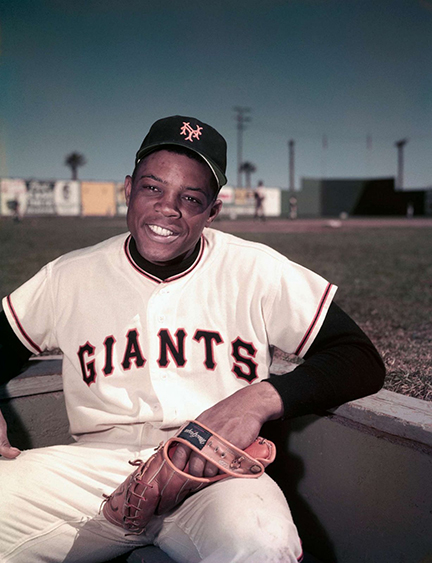
The death last week of the great Willie Mays also marked the end of one of the few remaining links to a bygone era. Mays, who died at 93 may have been the greatest all-round player of the modern (post-integration) era. He combined power, speed, percentage hitting, throwing and defensive ability in a manner that some could surpass in terms of individual categories, but none could top for total brilliance. He was also among the first players to jump from the Negro Leagues to the majors as a rookie. He made his debut in 1951 for the then New York Giants as a 20-year-old.
His extraordinary career can’t be accurately or fully described just by the numbers, but those were incredible. They include 660 home runs, over 3,000 hits and a career .302 batting average despite probably playing a couple of years longer than he should have in his early 40s and having those down years take a bit of a toll on his overall statistics. But no one who saw Mays in the 50s and ‘60s puts any weight on those final years. At his peak, he was not just a star, but personified flamboyance and excellence without ever becoming excessive or tiring. His natural playing approach had such style and grace he attracted lost of folks who weren’t necessarily baseball fans, but were awed by his accomplishments in much the same way Tiger Woods attracted the attention of millions of people with little or no interest otherwise in golf.
He was also part of a huge group of Black and Latino stars who made the National League so formidable throughout the ‘60s. While American League teams were slow to integrate, and in particular both the Yankees and Red Sox, National League clubs stocked up on Black stars. In turn the top athletes in the nation, and in particular those in the Black community, overwhelmingly chose baseball if they had professional aspirations.
That’s a far cry from today, when the NFL and NBA are both predominantly Black (as well as the WNBA) and African American participation in baseball is in the single digits percentage wise. Even with a recent boost in Black American draft choices, Black attention to and attendance at MLB games is nowhere near the levels it was in the heyday of Willie Mays. Ironically, if he were coming up today, he might not even have become a baseball player. Mays was an outstanding QB in high school, and throughout his later years whenever interviewed he always said “football was actually my best sport.” Fortunately, just like Jackie Robinson, who was an All-American running back at UCLA, Mays opted for baseball and became a legendary figure.
It can only be speculated how many home runs he might have hit had he not gone into the Army. He was still emerging as a star in 1952 when he was drafted, and stayed in the service until 1954. He had a spectacular return season, hitting .345 with 41 homers and winning the 1954 MVP award. He topped that off with an amazing catch in the 1954 World Series off Vic Wertz that is still shown on highlight reels today. The Giants upset a Cleveland team that had 111 wins in a 154 game season.
From that time throughout the rest of that decade and the ‘60s, Willie Mays was baseball’s signature star. President Barack Obama said this in 2015, when he awarded Mays the Presidential Medal of Freedom:
“A few years ago, Willie rode with me on Air Force One.. I told him then what I’ll tell all of you now—it’s because of giants like Willie that someone like me could even think about running for President.” Last Thursday was supposed to be a day when Willie Mays would be honored as well as the Negro League. It was the day after Juneteenth, and the San Francisco Giants and the St. Louis Cardinals were playing in Birmingham, Ala. at Rickwood Field, the oldest still-existing professional ballpark in the country. It was also where a teenaged Willie Mays got his start in professional baseball as a member of the Birmingham Black Barons. Sadly, Mays announced that Monday he couldn’t make the game.. On Tuesday, his passing was announced on the loudspeaker at Rickwood Field, during a minor league game. The crowd and players broke into a standing ovation and chanted “Willie, Willie!”
There are now clips on YouTube of various interviews Mays gave over the years, plus discussions that occurred at Thursday’s game. None of that can replace Willie Mays, nor fully convey the scope of his mastery as an athlete. But they do provide great reminders of how much he will be missed and the impact he had on sports and society throughout his lifetime.
Copyright TNTRiBUNE 2024. All rights reserved.



